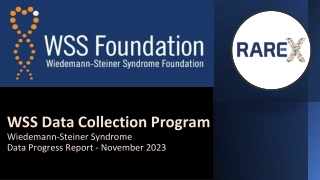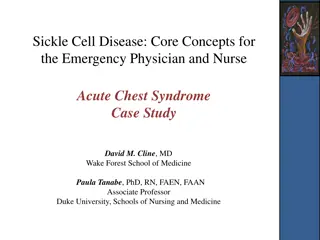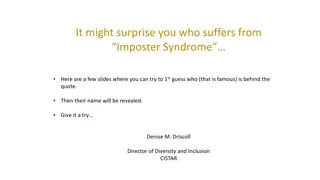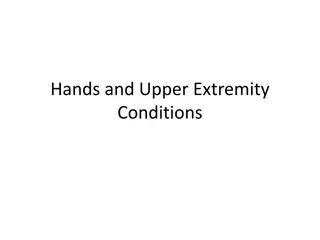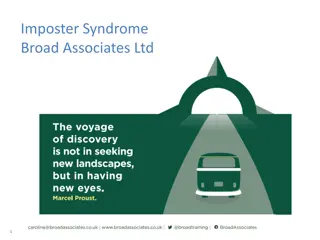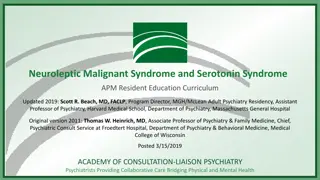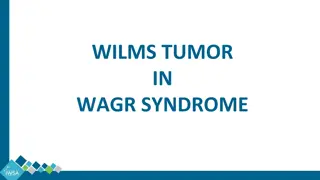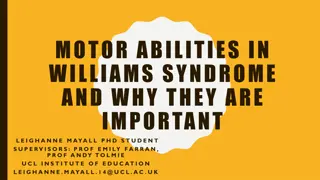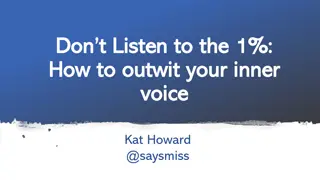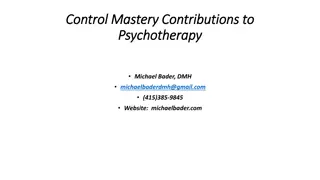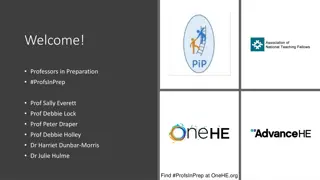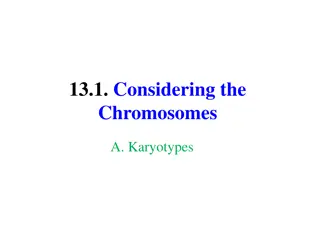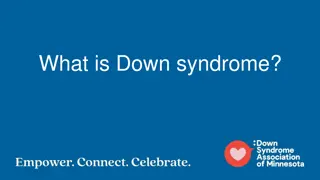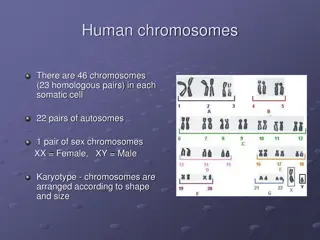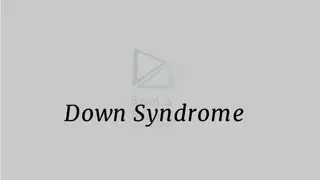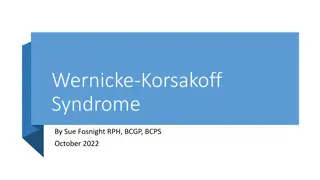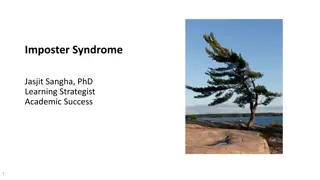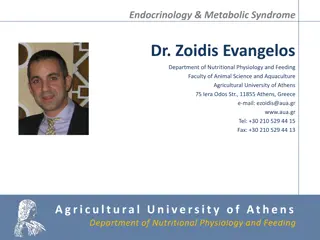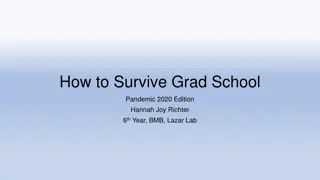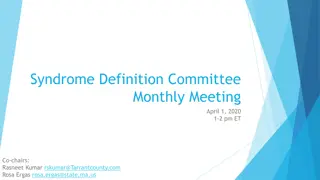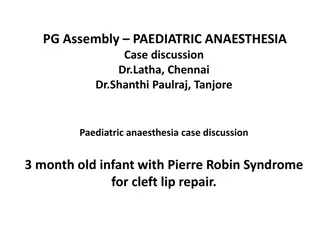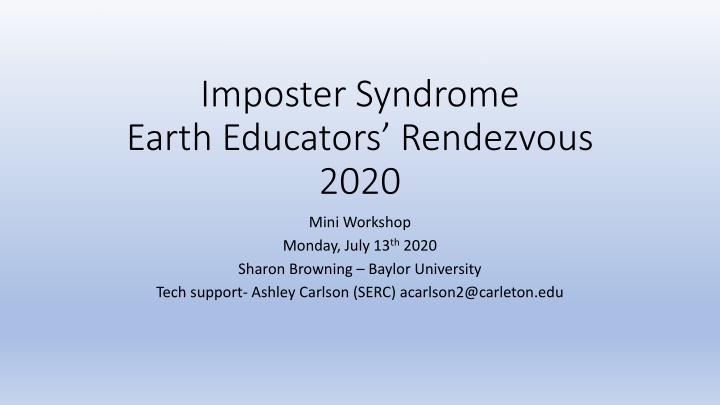
Combat Imposter Syndrome in Earth Education: Workshop Insights
Explore the impacts of imposter syndrome in the realm of Earth education through a detailed examination of common experiences, discussions, and strategies shared at the Imposter Syndrome Earth Educators Rendezvous 2020 mini-workshop. Gain insights on defining, addressing, and overcoming imposter syndrome within a supportive community of educators and learners.
Download Presentation

Please find below an Image/Link to download the presentation.
The content on the website is provided AS IS for your information and personal use only. It may not be sold, licensed, or shared on other websites without obtaining consent from the author. If you encounter any issues during the download, it is possible that the publisher has removed the file from their server.
You are allowed to download the files provided on this website for personal or commercial use, subject to the condition that they are used lawfully. All files are the property of their respective owners.
The content on the website is provided AS IS for your information and personal use only. It may not be sold, licensed, or shared on other websites without obtaining consent from the author.
E N D
Presentation Transcript
Imposter Syndrome Earth Educators Rendezvous 2020 Mini Workshop Monday, July 13th2020 Sharon Browning Baylor University Tech support- Ashley Carlson (SERC) acarlson2@carleton.edu
Poll 1 How many Rendezvous have you attended? a) This is my 1stone/new! b) Multiple (2-5) c) Expert (all 6)
Poll 2 Whos here? a) Student (undergraduate or graduate student) b) K-12 educator c) 2 year/community college d) 4 year college e) Informal educator/museum f) Community member (GSA/AGU/IRIS) g) Other
Workshop Goals/Timeline Why this workshop/define imposter syndrome 2 Breakout sessions for small group discussion Come together to report from small groups Time to work on personal action plan Leave with sense that your experiences are not isolated, and aware of potential resources
Why this workshop? Wilder Weather mini workshop, EER 2018 (Lawrence) Round Table Discussion, EER 2019 (Nashville, TN). Numerous common experiences of inadequacy, expectations, or comparison Cross section of attendees graduate students, early career, K-12 educators, faculty members
Why this workshop? Round Table Discussion, EER 2019 (Nashville, TN). Sample responses from last year How did I get this tenure-track job? Seeing other students that seemed better prepared Being only interested in geoscience education I just teach at a community college I only have my Master s. I wouldn t have gotten into this grad school if my advisor didn t have that grant-I m not as good as the others. Getting into this conference as a presenter.
Imposter Syndrome Definition Perception that accomplishments are not reflective of abilities and skills; achievements are undeserved and exposure as a fraud will occur (Clance and Imes, 1978). Originally thought to be restricted to high-achieving women as a result of family dynamics and social expectations, now recognized as affecting ~70% of people worldwide across multiple professions (Matthews and Clance, 1985). Perfectionism, family expectations, and fear/shame are common themes
Imposter Syndrome Definition Everyone else knows what they re doing but me
Imposter Cycle Figure from Sakulku and Alexander, (2011).
What are your experiences? Break Out Session 1 (20 minutes) Discuss your experience/perception in the breakout rooms, be prepared to share 1 thing when we return.
Break out Session 1 reports 1st semester with students as PhD student-co teaching with advisor before changing instructors, difference between seasoned instructors and new instructor Not everyone experiences imposter syndrome, family assurance that you have ability to gain knowledge, can encounter at different points in career Mid career experiences-coming into education from analytical/science background and feeling inadequate in education field, or liberal arts background coming into math intensive/right brain field, do I have anything to offer when surrounded by geophysicists/engineers Experiences of depression, cultural differences (1st generation college grad) Relationship with advisor in grad school significant effect on imposter syndrome Can also experience in personal life as mom/private life
Break be back in 15 minutes (305PM)
How do we counter these perceptions? Important to understand experiences are not isolated. How do we change our thinking? Break out session 2 (15 minutes) Discuss strategies/ideas to counter your thinking Be prepared to share resources on the white board when we return.
How do we counter these perceptions? Internal dialogue Be aware of language and dismissive words just, only Be aware of expectations/comparison (How do you define enough/success?) Reminding yourself you were chosen to be there Peers/mentors Seeking out peers or mentors (at institution/professional organizations) Ask peers based on their experience/how they re learning something Feedback on work (positive) Talking with peers/normalizing Role play/think pair share on specific examples Personal Habits Current vitae/resume/journal with written, dated list of successes Time Set small goals to achieve weekly Time to reward yourself/relax
Personal Action Plans (35 minutes) Link on program page
References/Resources Clance, P. R., & Imes, S. A. (1978). The impostor phenomenon in high achieving women: Dynamics and therapeutic intervention. Psychotherapy: Theory, Research, and Practice, Vol. 15, no 3, pp. 241 247 Cokley, Kevin, Shannon McClain, Alicia Enciso, & Mercedes Martinez (2013). An examination of the Impact of Minority Status and Imposter Feelings on the Mental Health of Diverse Ethnic Minority College Students. Journal of Multicultural Counseling and Development, Vol . 41, issue 2, pp. 82-95. Gravois, J. (2007). You re not fooling anyone. The Chronicle of Higher Education, 54(11), A1. Retrieved November 5, 2008, from http://chronicle.com Matthews G., & Clance P. R. (1985). Treatment of the impostor phenomenon in psychotherapy clients. Psychotherapy Private Practice. Vol. 3, pp. 71 81 Sakulku, J. & James Alexander (2011). The imposter Phenomenon. International Journal of Behavioral Science, Vol 6, no 1, pp. 75-97. https://impostorsyndrome.com/ (website for Dr. Valerie Young, author and speaker on Imposter Syndrome) https://paulineroseclance.com/impostor_phenomenon.html (list of literature and personal test)
Final thoughts/road check In the road check, what s either one new thing you heard, or something you found valuable. Please also email/add to road check any other ideas Sharon_Browning@baylor.edu

![❤[PDF]⚡ Zee Zee Does It Anyway!: A Story about down Syndrome and Determination](/thumb/20462/pdf-zee-zee-does-it-anyway-a-story-about-down-syndrome-and-determination.jpg)
